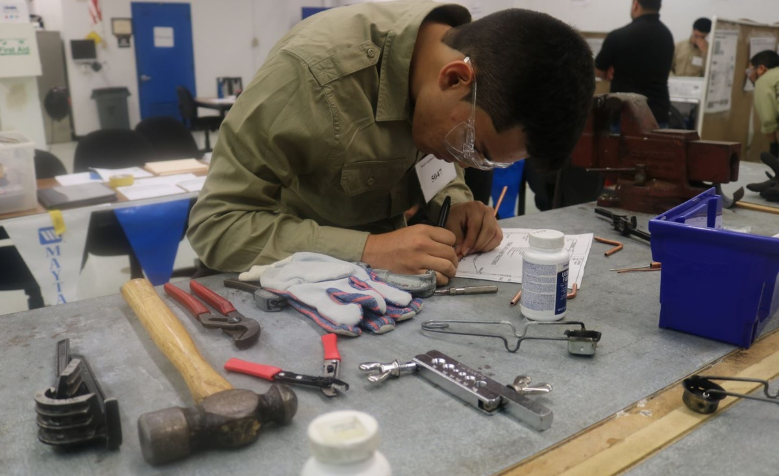Necessary Tips for Effective Ref Repair Work to Expand Home Appliance Life Expectancy
When it comes to your fridge, appropriate repair service and upkeep are essential for long life. Comprehending usual problems and recognizing when to act can make all the difference.
Understanding Common Fridge Problems
Refrigerators are essential in keeping your food fresh, however they can run into an array of common issues that interrupt their efficiency. If you see food spoiling quicker than normal, examine the thermostat settings or think about if the door seals are harmed. Identifying these concerns early can conserve you time and money in repair services, ensuring your refrigerator runs efficiently and successfully.
Regular Maintenance Practices
To keep your home appliances running efficiently, you need to remain on top of normal maintenance practices. Clean the condenser coils, inspect the door seals, and keep track of the temperature setups to guarantee peak performance. These easy jobs can conserve you time and cash on fixings down the line.
Tidy Condenser Coils Consistently
Cleaning your condenser coils on a regular basis can significantly boost your device's efficiency. Dirt and dirt build up on these coils gradually, creating your home appliance to function tougher and consume more power. To keep them clean, disconnect your device and meticulously eliminate any type of safety covers. Use a vacuum cleaner with a brush accessory or a soft brush to gently get rid of debris. If needed, a combination of warm water and mild detergent can assist eliminate persistent crud. Ensure to allow everything dry completely before reconstructing and plugging the appliance back in. Purpose to clean your coils at the very least twice a year, or more often if you have pet dogs or stay in a messy atmosphere. This easy job can extend the life-span of your appliance considerably.
Inspect Door Seals
Three simple steps can assist you assure your device's door seals are in good condition. Examine the seals regularly for any type of fractures, rips, or indications of wear. These damages can cause air leakages, influencing efficiency. Second, tidy the seals making use of cozy, soapy water to remove any kind of particles or crud. A clean seal assures a tight fit and much better performance. Lastly, perform a simple test by shutting the door on a notepad. If you can conveniently pull it out without resistance, the seal may need changing. By complying with these actions, you'll keep your device's efficiency and durability, conserving you cash on power bills and fixings in the lengthy run.
Display Temperature Level Settings
Consistently checking your device's temperature level setups is crucial for finest performance and performance. Whether you're managing a refrigerator, fridge freezer, or oven, maintaining an eye on these settings can avoid several problems. For refrigerators, go for temperatures in between 35 ° F and 38 ° F; for freezers, stay 0 ° F. If the temperature levels are too expensive or low, your device might function harder, wasting energy and shortening its life expectancy. Make use of a thermostat to inspect these setups regularly, especially after significant adjustments, like relocating your device or readjusting the thermostat. If you notice variations, change the setups appropriately and seek advice from the user manual for support. By staying positive regarding temperature monitoring, you'll assure your devices run smoothly and last much longer.
Troubleshooting Air Conditioning Concerns
When your refrigerator isn't cooling down appropriately, it can result in spoiled food and threw away cash, so resolving the concern without delay is vital. Begin by examining the temperature level settings to verify they're at the suggested degrees, usually around 37 ° F for the fridge and 0 ° F for the fridge freezer. If the settings are proper, evaluate the door seals for any spaces or damage; a faulty seal can enable warm air to go into.
Inspect see this site the condenser coils, normally situated at the back or base of the device. Tidy them with a vacuum or brush to maximize performance. If issues continue, it may be time to call an expert.
Taking Care Of Water Leakage and Ice Accumulation
If you're managing water leakage or ice accumulation in your home appliance, it's vital to determine the resource of the trouble. By determining where the water is coming from, you can stop additional concerns and stay clear of pricey repairs. Allow's discover some effective approaches to tackle these usual issues.
Recognize Leakage Sources
Just how can you effectively recognize the sources of water leakage and ice build-up in your home appliances? Begin by checking the seals and gaskets on your fridge and freezer doors. By methodically checking these locations, you'll determine the resource of the issue, enabling you to take the required actions to repair it and prolong your appliance's lifespan.
Prevent Ice Formation
To prevent ice formation in your home appliances, start by confirming the official site temperature level setups are suitable. If your fridge or freezer is as well cold, it can cause extreme ice accumulation. Examine the door seals consistently; damaged seals can allow cozy air in, creating condensation and ice formation.
Maintain the appliance well-ventilated and avoid overcrowding, as this can obstruct air movement - Best Appliance Repair Near You Dependable Refrigeration & Appliance Repair Service. Regularly thaw your fridge freezer if it doesn't have an automatic defrost attribute.
If you see water leakage, determine and take care of any kind of blocked drainage openings, as they can add to ice accumulation. Lastly, clean the coils and verify they're working properly to preserve peak efficiency. Taking these steps will certainly aid expand your device's lifespan and effectiveness.
Resolving Noisy Fridge Sounds
While it may seem disconcerting, a loud fridge typically signifies minor problems instead than major breakdowns. Common culprits include the compressor, followers, and water lines.
Next, look for loose products inside. Sometimes, containers or shelves can rattle, producing unwanted sound. Tighten or reorganize them to remove the noises.
If you discover a clicking noise, it could be the defrost timer. This is normally safe yet might suggest it needs evaluation.
Finally, confirm your refrigerator is degree. An unbalanced home appliance can create vibrations and noise. Make use of a degree to check, and adjust the feet if required. Dealing with these problems immediately can help maintain your fridge's performance and extend its life expectancy.
When to Replace Parts vs. Full Substitute
Consider the cost of repair work versus the appliance's worth. In addition, if you discover continuous problems that maintain reoccuring, it's an indication that your home appliance has actually gotten to the end of its life.
Recognizing When to Call an Expert
Just how can you inform when it's time to call in a specialist for device repair service? If your appliance quits working entirely or frequently trips circuit breakers, it's another red flag.
You need to additionally consider your own convenience level with repair services. If you're unsure about diagnosing the trouble or lack the right devices, it's best to connect for aid. Remember, trying difficult repairs can bring about even more damages and even safety and security threats.

Frequently Asked Concerns
Just how Commonly Should I Tidy the Fridge Coils?
You need to clean your refrigerator coils every 6 months. This assists maintain efficiency and protects against getting too hot. If you observe excessive dirt or pet dog hair, clean them extra regularly to guarantee your fridge runs smoothly.

Can I Make Use Of Vinegar for Cleaning My Fridge?
Yes, you can make use of vinegar to cleanse your fridge! It's a superb natural cleanser that removes smells and stains. Refrigerator repair experts Dependable Refrigeration & Appliance Repair. Just blend it with water, use it to surfaces, and clean down for a fresh, tidy fridge
What Temperature Should My Fridge Be Ready To?
You ought to set your fridge to 37 ° F(3 ° C) for optimal food conservation. This temperature level keeps your food fresh while preventing putridity, ensuring your groceries last much longer and lowering waste. It's a simple adjustment you can make!
Does a Refrigerator Need to Be Leveled?
Yes, your fridge needs to be leveled. If it's unequal, it can influence cooling effectiveness and create excess sound. Inspect the leveling legs and change them to ensure correct equilibrium for excellent efficiency.
Just How Can I Decrease Fridge Power Intake?
To decrease your fridge's energy intake, keep it clean and well-ventilated, examine door seals for leakages, set the temperature level between 35-38 ° F, and prevent straining it. These actions can substantially reduce your energy bills.